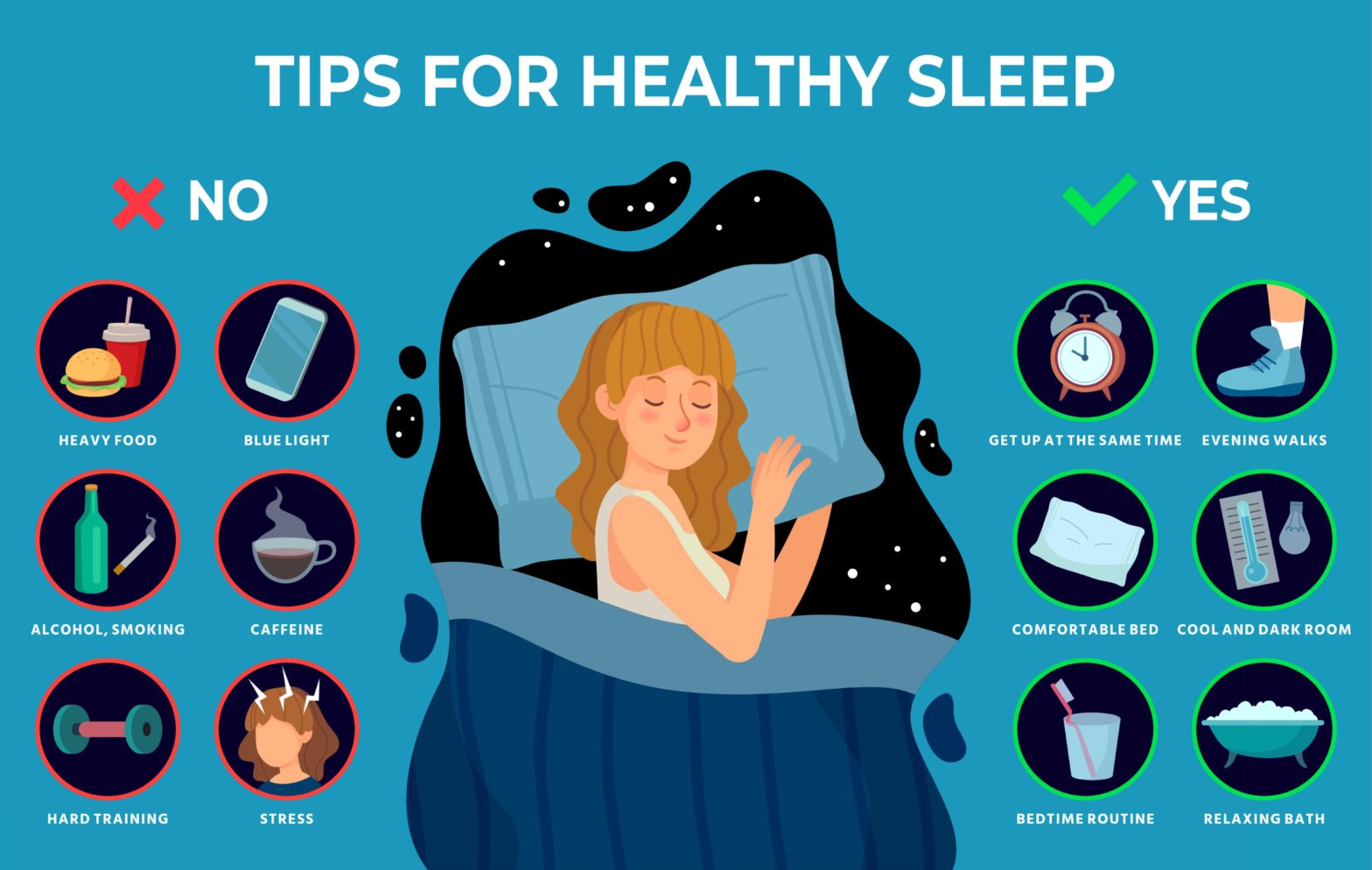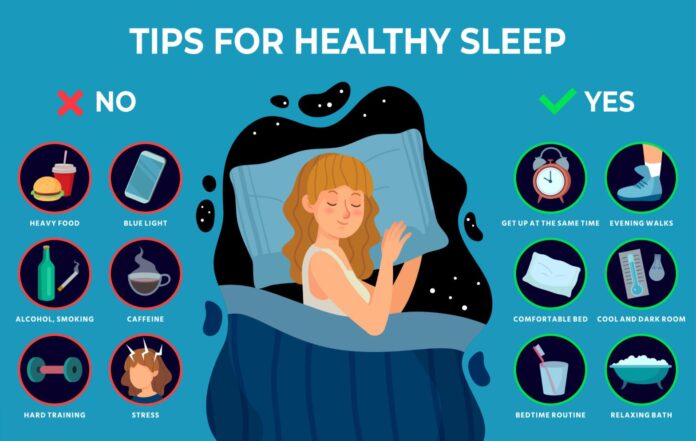
A restful night’s sleep is essential for physical and mental well-being. But, sometimes, achieving quality sleep requires more than just heading to bed. Sleep hygiene, a set of healthy sleep habits and practices, plays a vital role in promoting restful and restorative sleep. In this article, we’ll delve into the principles of good sleep hygiene to help you enjoy peaceful nights and productive days.
1. Maintain a Consistent Sleep Schedule:
The body operates on an internal clock known as the circadian rhythm. Going to bed and waking up at the same times every day helps regulate this clock. Consistency reinforces your body’s natural sleep-wake cycle, making it easier to fall asleep and wake up feeling refreshed.
2. Create a Comfortable Sleep Environment:
Your bedroom should be conducive to sleep. Consider the following:
- Mattress and Pillows: Invest in a comfortable mattress and pillows that support your sleep posture.
- Darkness and Coolness: Make your bedroom as dark and cool as possible. Consider blackout curtains and using a fan or air conditioning for temperature control.
- Noise Control: Reduce or eliminate noise with earplugs, white noise machines, or soundproofing.
3. Limit Screen Time Before Bed:
The blue light emitted by screens can interfere with the production of melatonin, a hormone that regulates sleep. Avoid screens (phones, tablets, TVs, and computers) at least an hour before bedtime.
4. Watch What You Eat and Drink:
Your diet can affect your sleep. Avoid heavy or spicy meals close to bedtime. Caffeine and alcohol can also disrupt sleep, so it’s best to limit their consumption in the evening.
5. Regular Exercise:
Regular physical activity promotes better sleep. However, try to complete your exercise at least a few hours before bedtime. Exercising too close to bedtime can have the opposite effect.
6. Wind Down Before Bed:
Engage in calming activities before sleep. This could include reading a book, taking a warm bath, practicing relaxation techniques like deep breathing, or gentle yoga.
7. Limit Naps:
While short power naps can be beneficial, lengthy daytime naps can interfere with nighttime sleep. If you need to nap, keep it under 30 minutes and earlier in the day.
8. Manage Stress:
High stress levels can make sleep elusive. Stress-reduction techniques, such as meditation, progressive muscle relaxation, and mindfulness, can be valuable for improving sleep.
9. Use Your Bed Only for Sleep:
To strengthen the association between your bed and sleep, use it exclusively for sleep and intimate activities. Avoid working or watching TV in bed.
10. Get Up If You Can’t Sleep:
If you can’t fall asleep or wake up in the middle of the night and can’t get back to sleep, don’t lay in bed tossing and turning. Get up, go to a different room, and engage in a quiet, non-stimulating activity until you feel sleepy.
In conclusion, implementing good sleep hygiene practices can significantly enhance the quality of your sleep. By adopting these habits, you’ll be on your way to more restful nights and energized days. If you continue to experience sleep problems despite practicing these habits, it may be beneficial to consult a healthcare professional or sleep specialist to rule out any underlying sleep disorders. Quality sleep is within your reach; all it takes is a commitment to good sleep hygiene.

